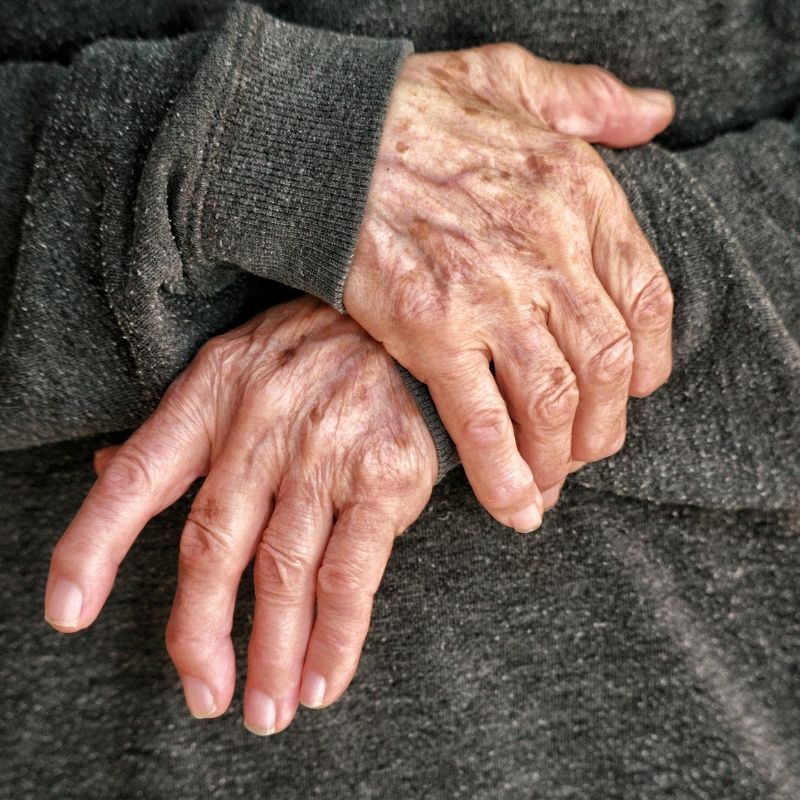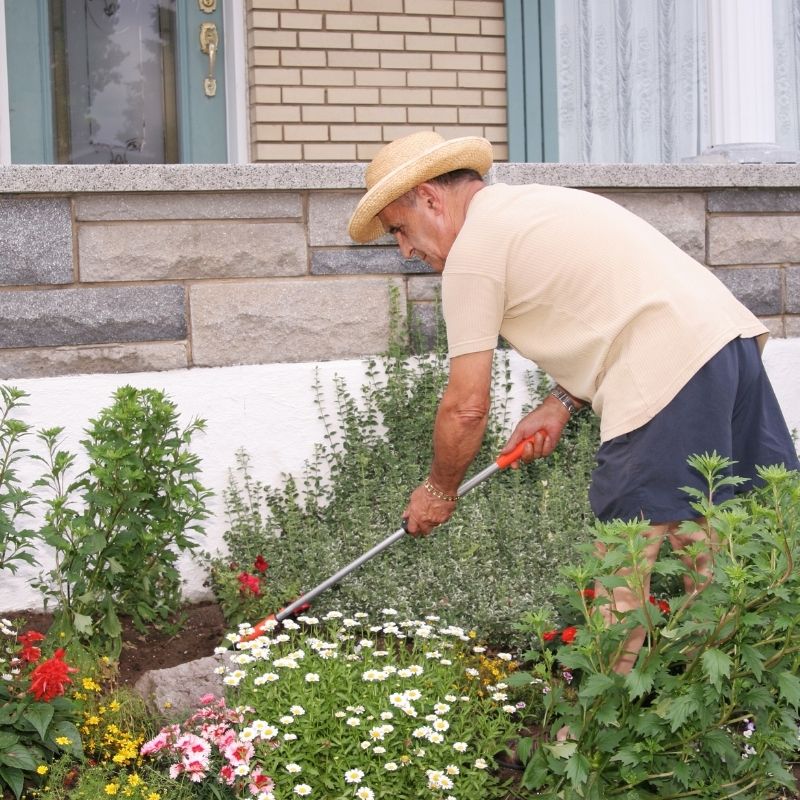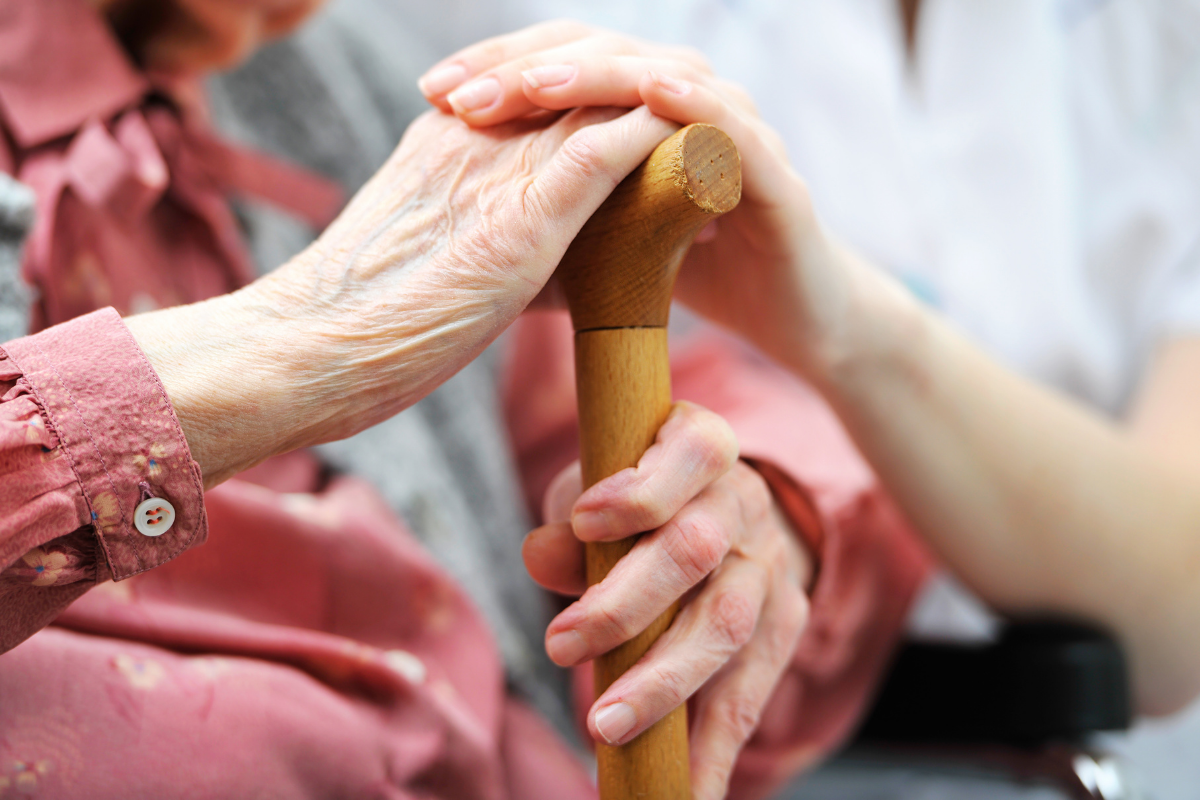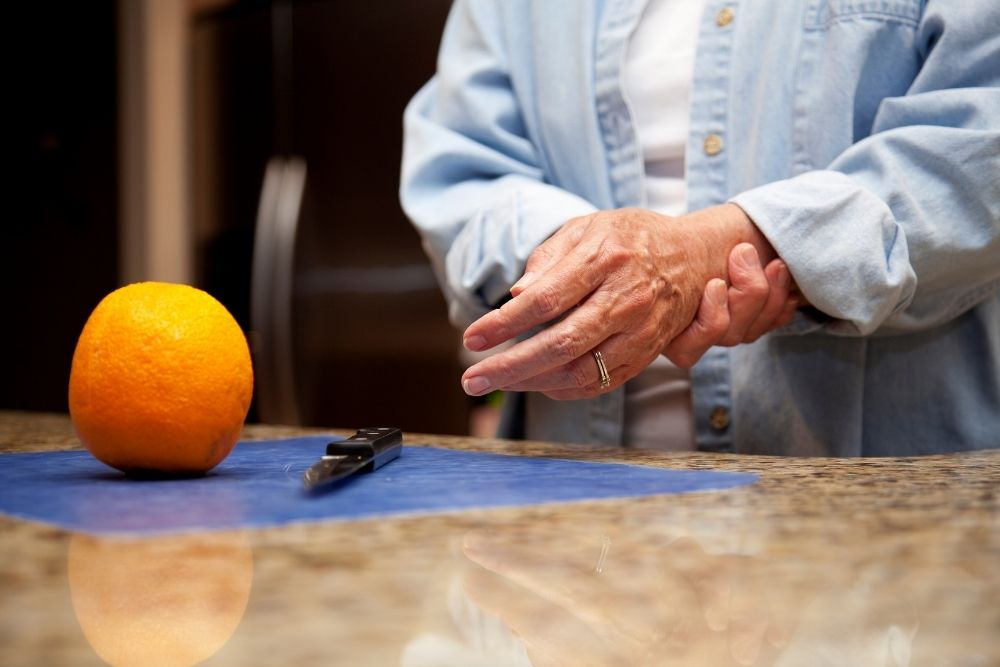Arthritis pain is known to rob seniors of quality of life. If you ever noticed your senior loved one wince as they attempt to grab something off a shelf? Are you noticing swelling or pain in their joints? Do they seem to be experiencing pain or swelling in their joints? Are their general movement and their ability to enjoy life impacted? If so, the following article is for you. We provide some expert tips to help your senior cope with Arthritis pain.

Arthritis generally refers to joint pain or joint disease. Seniors with arthritis may experience differing degrees of stiffness, pain, swelling, and significantly decreased range of motion in their hips, knees, back, or hands. Arthritis can make activities of daily living (ADLs) more difficult and cause seniors significant pain and discomfort, which can have a ripple effect that touches almost every other aspect of their lives, from their mental health to their relationships with loved ones.
Here are a few ways that family caregivers can assist senior loved ones age in place with arthritis safely, independently, and mostly pain-free:
Build a Relationship with Your Senior’s Healthcare Team
For seniors managing arthritis, it’s incredibly important to stay in touch with a team of qualified healthcare professionals, which may include their primary care physician, an arthritis specialist, a physical therapist, and even a pharmacist.
Over time, it’s important to keep these healthcare professionals informed of any changes to your senior’s condition so that they can modify their course of action accordingly. Your senior loved one’s healthcare team may adapt their exercise, nutrition, or medication plans if needed. As a family caregiver, it’s crucial that you maintain an open dialogue with your senior and their medical team, to make sure that you’re up-to-date on their care plan, and can address any questions or concerns as they come up.
If you’re not the primary caregiver for your senior loved one, it will be worth your while to familiarise yourself with your senior’s care plan to ensure that medication management, fitness regimes, and any other supporting activities are being followed and are proving beneficial.

Facilitate Simple Home Modifications
One of the most impactful things a family caregiver can do for a senior loved one with arthritis is to help them modify and update their home environment, to make sure it’s safe, livable, and, above all, comfortable.
Home modifications can be costly and may not be viable for everyone. A few simple swaps here and there can dramatically improve day-to-day life for seniors with arthritis, reducing strain and minimizing their risk of falling. Here are a few suggestions to consider:
- Place kitchen appliances at counter height, so there’s no need for stooping or bending
- Raise the height of seats throughout the home, including sofas, dining room chairs, and toilets
- Get rid of clutter, which can create obstacles for seniors with more limited mobility; make sure there are clear paths throughout the home
- Add grab bars and non-slip mats in the bathroom, and strategically add railings in the shower or throughout the home
- Equip your senior with a grabber, so they do not have to stretch or bend to reach every time an item falls on the floor
- Opt for automation where possible – electric can openers and similar appliances can make things easier in the kitchen, while automated toilet bowl cleaners and other gadgets can work wonders in the bathroom
- Make dressing easier by setting up your loved one with zipper pulls, button fasteners, and long-handled shoehorns
- Add nightlights and easy-to-control lighting throughout the home. Automated lightbulbs that work with light sensors are also great for increasing visibility without your senior having to lift a finger
- Consider adapting the layout of the home to work for the senior’s needs; this may mean relocating the laundry room so it’s not in the basement, or setting up the master bedroom on the main floor so your loved one doesn’t need to take the stairs each night
Encourage Healthier Patterns of Eating to Manage Arthritis Pain
Nutrition is usually one of the first things that a medical professional will discuss with your senior after an arthritis diagnosis. Eating healthily and avoiding certain foods can help mitigate some of the symptoms of arthritis. At the same time, doctors usually encourage seniors to focus on maintaining a healthy weight, as this can help make it easier to move, and exert less pressure on sensitive joints.
To that end, the Arthritis Foundation recommends focusing on a diet rich in fruits and vegetables, grains, and proteins, while cutting out processed foods and other foods high in sugars and unhealthy fats.
For a more in-depth guide to eating well with arthritis, you may want to peruse the Arthritis Foundation’s “Arthritis Diet” guide, available here.

Use Physical Activity and Movement as a Means to Combat Arthritis Pain
The age-old trifecta of a healthy diet, enough physical activity, and a positive mindset can make a big difference for seniors who are aging in place with arthritis. Focusing on low-impact exercises can help seniors get moving, stretch out, and strengthen their muscles, making it easier to manage the symptoms of arthritis in their joints over time. It’s important to consult with your doctor or physical therapist before attempting to start a new exercise program.
Broadly speaking, activities that allow seniors to get active while putting less strain on their joints, include walking, doing yoga, gently stretching, cycling, or getting doing light exercises in the pool.

Show Empathy and Be Open to Listening
For many seniors, arthritis can be a significant burden, above and beyond the physical pain it causes. In many cases, seniors dealing with arthritis symptoms may become socially withdrawn, or start to experience feelings of depression or anxiety. Feeling trapped by their physical condition, many older adults may respond with anger or helplessness. In short, experiencing chronic pain and limited mobility can put a damper on a senior’s spirits, and influence how they interact with others.
If you are a family caregiver, it’s important to keep an open mind, and always try to put yourself in your senior loved one’s shoes. Be empathetic, and be willing to listen to their complaints and address their needs. Often, one of the very best things you can do to help improve a senior’s quality of life is to simply be present for them, offering a sympathetic ear and a reassuring hug. Keep up an open dialogue, and be alert for red flags, particularly since your senior loved one may not always volunteer this sensitive information themselves.
Don’t Be Afraid to Ask for Help
As a family caregiver, it’s important to know your limits. While caregiving is an incredibly generous act of love and support, it can also be physically and emotionally draining, and leave you with little time left for the other important things in life – including taking care of your own health and well-being.
For all those times when you need an extra set of hands, don’t be afraid to reach out for help. There are countless resources available to family caregivers looking to support a senior with arthritis, ranging from local support groups to food and laundry delivery services, to professional home care.
Our coalition of trusted Arizona companies answers critical care questions and provides the appropriate services, plans, and products for the elderly and their families in need of guidance. Whether families need financial services, legal advice, moving assistance, or in-home help, Senior Resource Connectors is here to help.
For more information on senior living professionals, please visit our website or give us a call today. We would be happy to help you find the right solution for your needs.















